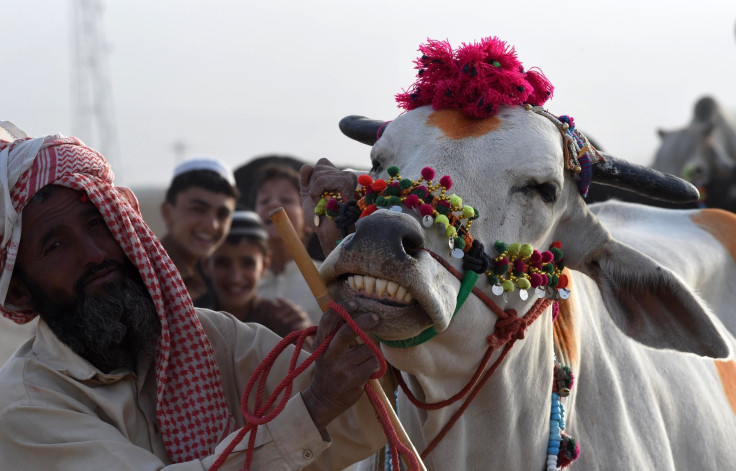Eid Al-Adha 2015 Live Stream: How To Watch Muslim Celebration Of Holiday Marking End Of Hajj

Muslims all around the world are preparing to celebrate Eid al-Adha Thursday, which marks the end of hajj. Nearly 2 million Muslims began the annual pilgrimage Tuesday, descending on the holy city of Mecca, Saudi Arabia. Hajj is one of the five pillars of Islam, and all able-bodied Muslims who can afford to make the trip are expected to embark on the journey to Mecca at least once in their life.
Watch the live stream of this year’s Eid al-Adha here:
Hajj is a six-day tradition that is centuries old. During hajj, Muslims retrace the steps of the Prophet Muhammad and recount their devotion to God. Hajj rites include circling the Kaaba, traveling between the mountains of Safa and Marwah, praying on the plains of Arafah and casting stones at pillars that represent the devil.
The end of hajj is marked by the holiday of Eid al-Adha, which is three- to four-day celebration that includes an animal sacrifice, a feast, prayers and the exchanging of gifts. This year’s Eid al-Adha is expected to begin Thursday. Eid al-Adha is different from Eid al-Fitr, which marks the end of Ramadan, the Muslim month of fasting.
Muslims who are financially capable are expected to sacrifice an animal, such as a sheep, goat or cow, and then are supposed to eat one-third of the meat, share one-third with friends or neighbors and donate one-third to the needy. During the celebration, Muslims also buy new clothes, exchange gifts and visit loved ones. Eid al-Adha is also known as the Festival of Sacrifice or the Greater Eid. Common greetings that are appropriate during Eid include “Eid Mubarak,” or “Blessed Eid,” “Kul ’am wa inta bekhair,” or “May every year see you in good health,” and “Eid Saeed,” or “Happy Eid.”
© Copyright IBTimes 2025. All rights reserved.






















